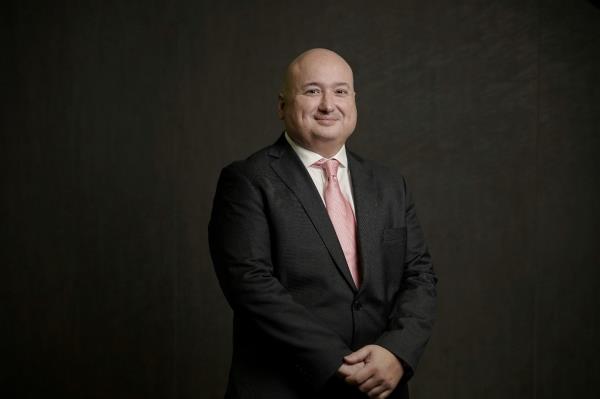07 March 2024
Fadi Pharaon, President of Middle East and Africa, Ericsson
Monetising technology
On the continent, we're going to continue working on the monetisation of 5G; we see some good examples in mining, for instance, and other vertical industries where we can take proof of concepts and even make some commercial deployments.
One of the capabilities that 5G brings, and probably one that is unique compared to the previous generation, is the very low latency, which translates into an almost near real-time monitoring and management of automatic vehicles or sensors. It opens up the door for enterprise or industrial applications, such as management of cranes and other equipment that require very low latency.
To really bring 5G into the modern factory, we must begin with establishing the precise needs of a manufacturing plant – which can be very different if you're manufacturing insulin pens, for example, compared with calculators. We need a constellation of knowledge, people who understand that specific industry, which we can translate that into technology adoption.
There are multiple impacts that can be made, and there are examples around the world, not the least being our own 5G factory in the US, which we designed from scratch to be fully automated, sustainable, and using 5G.
4G, 5G – 6G?
We've seen that across the world there’s a huge amount of 5G traffic right now, but for Africa, it remains early days. There's a major wave of rollout and adoption of 4G, driven by multiple factors; one being the increasing affordability of 4G enabled smartphones; and another being access to all the different services available, which can add value for the African population.
When it comes to 5G’s entrance to Africa, device affordability just isn’t as good as with 4G, although we will see that improve with time. While that may be so for mobile, one 5G proposition that does make sense for Africa right now is fixed wireless access (FWA). The operators are offering access to home broadband that can be set up quickly, basically reusing the same assets of the mobile network. There’s demand in Africa for 5G home broadband, and for TV over broadband that can be addressed either with fibre, 4G/5G, and FWA; and the economics of mobile broadband at home are quite compelling. There are also certain cities where there is a good affordability - at least on par with other metropolitan cities around the world - for pure 5G handsets for mobile broadband as well.
Technology is fascinating - we have a propensity to look to the future and make up very grand visions. 6G is still within standardisation, so it's early days for commercial deployment - we don't envisage to see any until the end of this decade.
For any continent, including Africa, what's important is to get the technology rolled out and monetised the right way for the CSPs. If we don't find the business case, it will not be worth the time to deploy. For 4G and 5G in Africa, we’re looking at the different use cases, be it consumer or industrial, that we can do today.
Of course, 6G comes with a very compelling story on how we can try to merge the physical and digital worlds, how we're going to have digital twins of cities, and be able to have fully functioning smart city models that we can experiment upon. All of that is going to be driven very much by AI.
Moreover, new technologies like 5G and AI don’t always have to be about creating new services – they can also be about driving efficiencies, supporting sustainable practises, or enhancing the end user experience. Power consumption is vital, and we must always consider consumption and sustainability for the networks that are being operated. Accordingly, we use emerging technologies like AI in our products for power management. We have software that can reduce the power consumption of our radios, which is a very important achievement, particularly for Africa.
A force to be reckoned with
If you look at Africa, the power and the potential emanates very much from the vast youthful population, who are driven and entrepreneurial. I think that is really a force to be reckoned with, there’s such a hunger for digital adoption and digital learning.
In many parts of the continent, it's mobile first or mobile only. We have a big belief in that, and whenever we meet our customers - the operator or regulatory bodies - we see an extremely focused approach to bring the countries forward to improve the society and economies through digitisation.
Of course, like anywhere else in the world, it's step-by-step. There will always be hurdles, there will always be time for adoption, but the trajectory is clear. And that's why these technology advancements are helping, sometimes accelerating all these movements.






